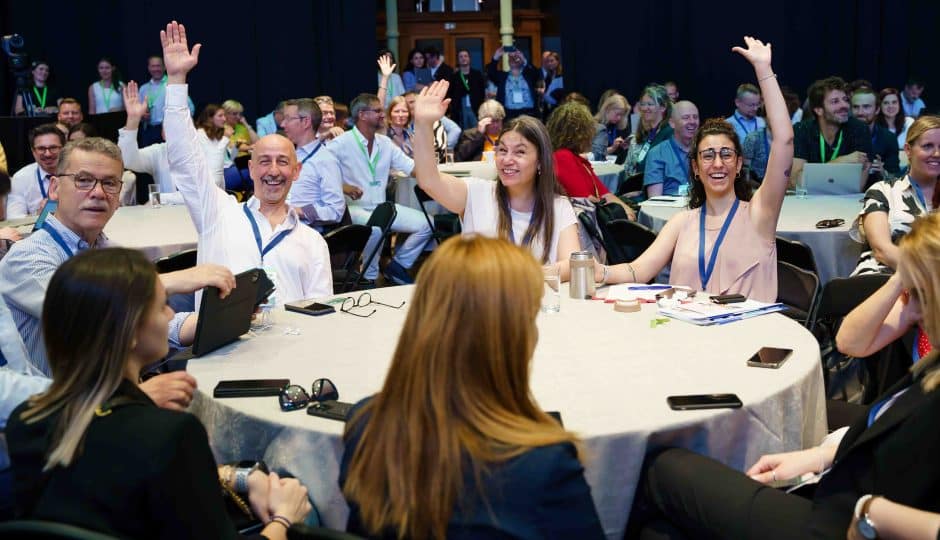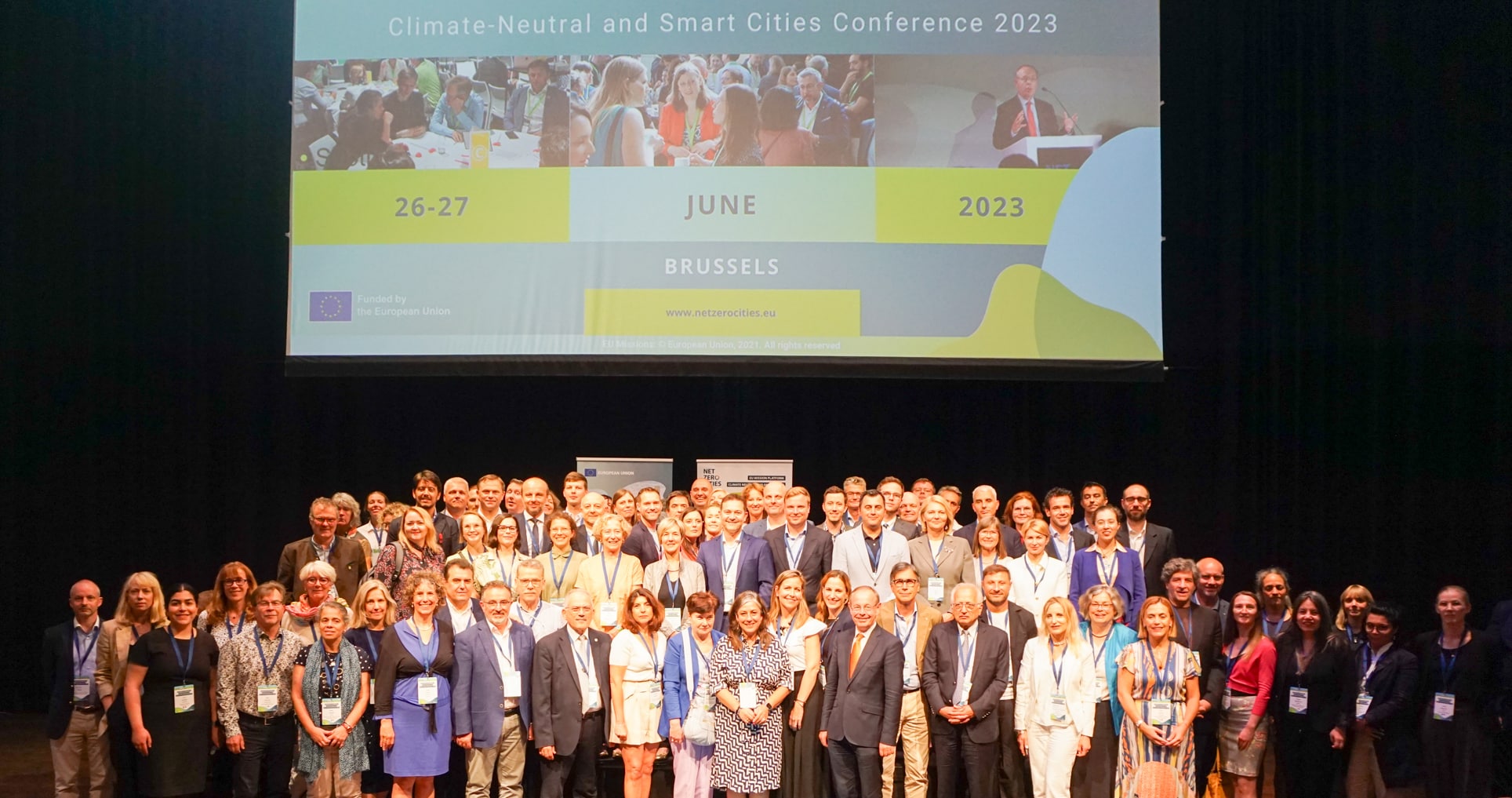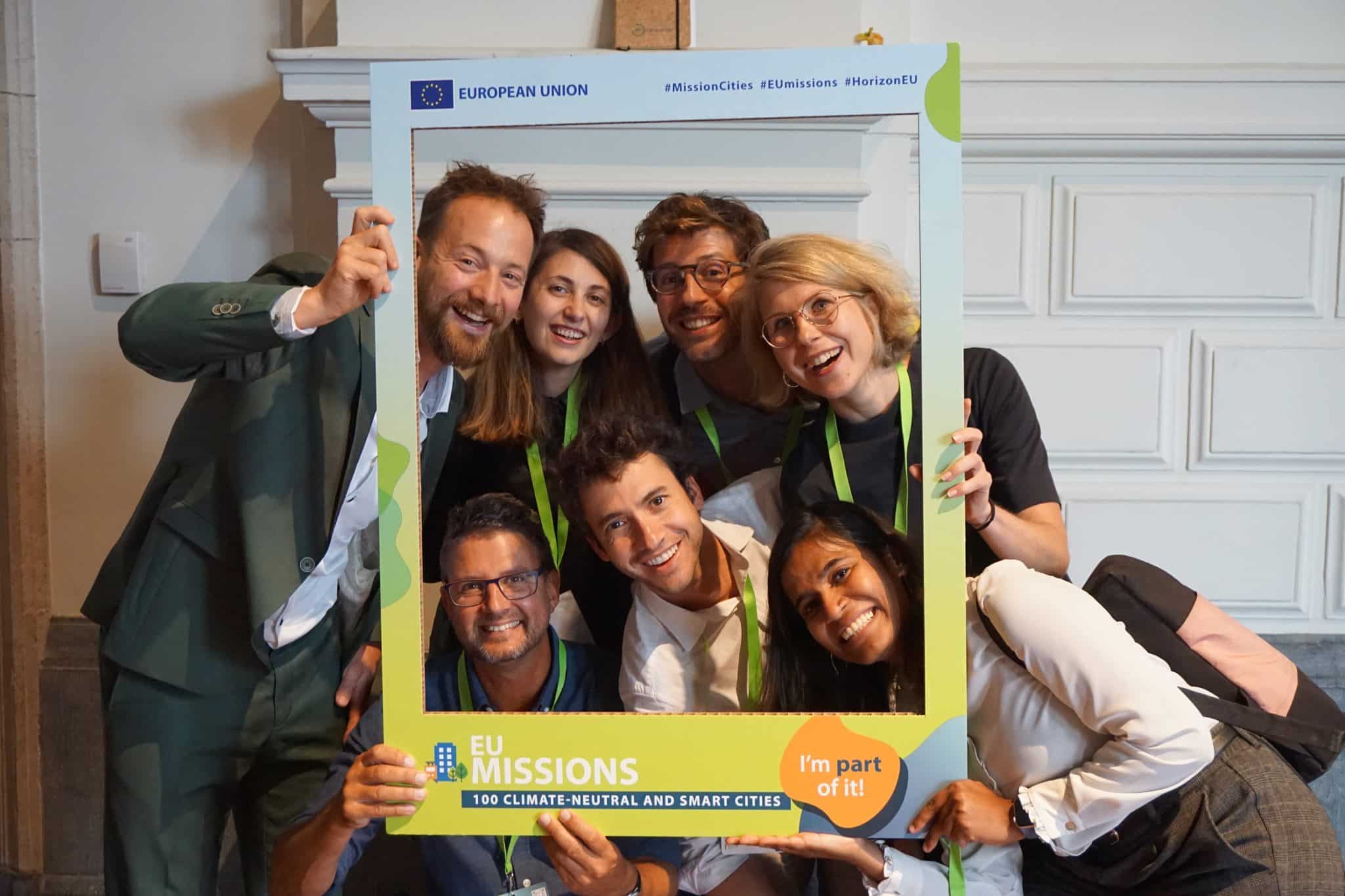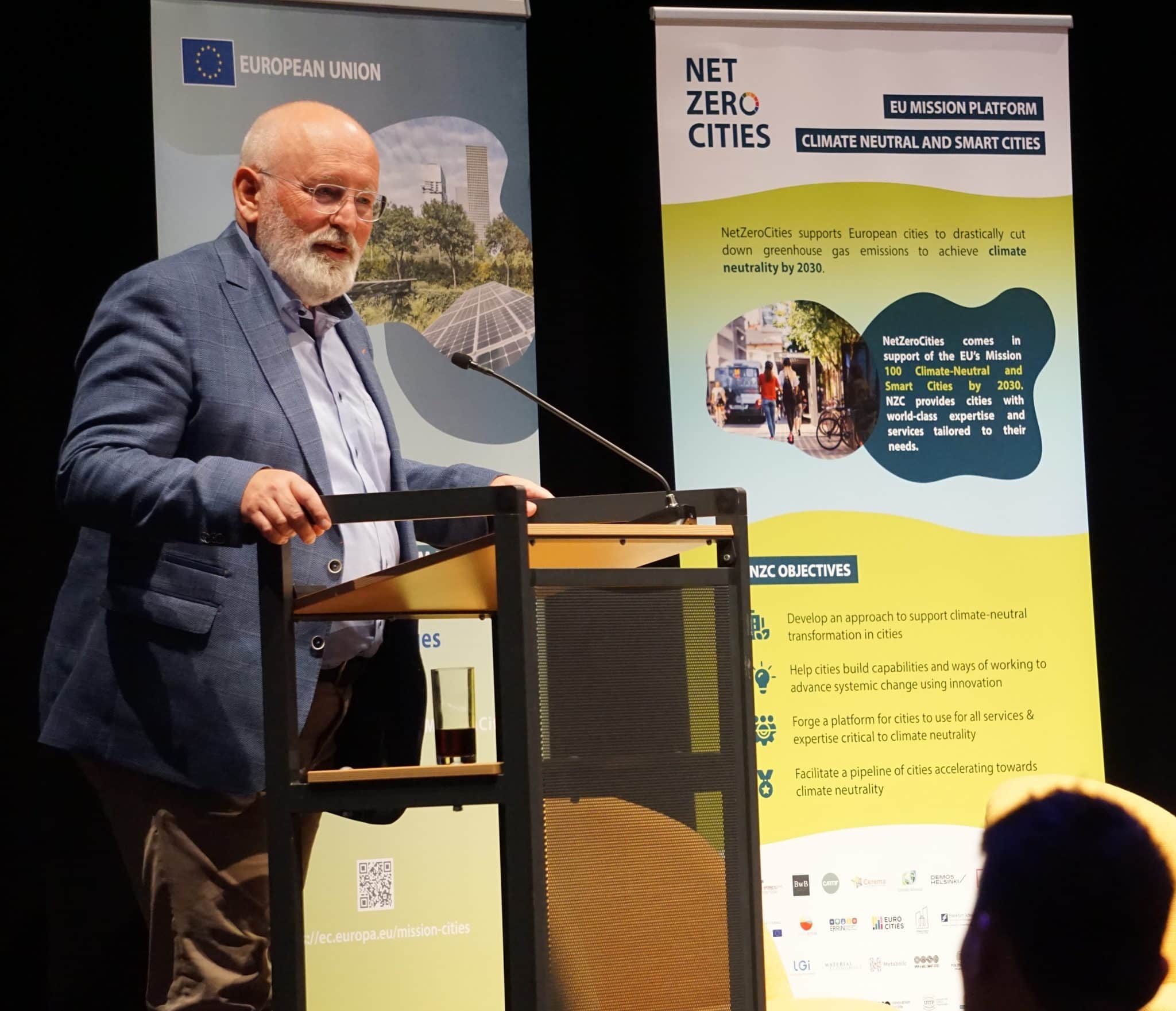Collaboration and mutual trust underpin systemic change in Europe through NetZeroCities

On the one-year mark of NetZeroCities, more than a hundred cities gathered in Brussels to discuss progress and share experiences from the first twelve months of the programme. All participating cities worked on a systemic approach, building collaboration and shared trust.
Cities around the world are impacted by climate change. Many of them have already started to work with a range of stakeholders and with each other to address the climate challenges in a systemic way. By engaging different sectors and actors, cities can leverage their collective expertise, resources and influence to drive meaningful change. These are the cornerstones of the NetZeroCities programme, which aims to support European cities on their path to climate neutrality by 2030 as part of the EU Missions.
The “Mission in Progress” conference, held on 26 and 27 June, created an opportunity for reflection on the actions cities need to take to achieve their net zero targets and highlighted the importance of cooperation between cities within the Mission and beyond. The event included peer-to-peer exchange sessions, panel discussions, conversations with the EU Cities Mission representatives and much more. It also provided opportunities for city practitioners to discuss crucial questions related to the programme process, thematic issues such as citizen engagement, the Pilot Cities Programme as well as exchange ideas with fellow Mission Cities representatives and EU officials such as Frans Timmermans, Executive Vice-President, European Commission.
“Many cities already have climate goals and a climate action plan of some kind, but they are at different stages in target-setting, planning, monitoring, and implementation. A key component of the EU Cities Mission is to bring these diverse cities together to accelerate their climate action and mobilise coordinated efforts to achieve greater impact. It is cliched but this has to be a marathon rather than a sprint; we need to move quickly in a sustainable and equitable way.” – says Keira Webster, NetZeroCities City Advisor, Climate KIC, who highlights the impressive scale and ambition of cities challenging themselves to achieve the goal of becoming climate neutral by 2030. “We have 112 cities – with very different contexts – working together, sharing similar challenges and opportunities. I think the group or team effort of the Mission can be strength-building. It not only provides the opportunity for collaboration and collective problem solving but also ideally fosters a general sense that ‘I am not alone in this’. The conference showed that cities are eager to work together on their climate challenges” – Webster adds.
Climate change is a systemic problem at a planetary scale, and no one can solve it alone. The NetZeroCities programme, therefore, encourages cities to work together, learn from each other and share their experiences to advance and accelerate climate action. This deep collaboration can contribute to them finding new ways of doing things, new patterns and the courage to implement and manage them.
“Cities should not be afraid to discover new things and find out that there is still a gap, but they should also take the time to reinvent the way they operate. And they should be willing to look in the mirror and see what already exists, what they still need to achieve, what they can do alone and where they could use support. This process is about being really resilient in the approach and moving on, even when it would be easier to close their eyes and continue to do things the way they know.” – Anna Huttunen, NetZeroCities City Advisor, Climate KIC, said.
Cities cooperate by sharing experiences and collaborating for example with national governments to establish a platform or network such as the Spanish Platform. Some cities, like the Spanish ones, have created pilot city programmes together to join forces for the climate goal. They already have existing relationships with different stakeholders in other cities with whom they might talk, either through other projects or conferences.
A few cities within the NetZeroCities are already connected to other cities in the sense that they’ve already found a point of similarity or a point where they can learn from others, or from each other. One of the key priorities in the coming months and years as part of NetZeroCities is how they can meaningfully foster connections, building on the existing relationships cities have with each other.
“The Mission Platform strives to both recognise cities’ specificities and local situation and connect them on similar goals, areas of focus, and challenges. In doing so, the aim is to tackle certain challenges together by brainstorming, involving experts, discussing with different levels of government, etc. I think working through things together and encountering different perspectives is useful, especially when you’re trying to do something that’s never been done before.” – Webster continues.
Jakob Stolt, NetZeroCities City Advisor from Copenhagen, underlines that cities have realised that addressing climate change requires not only technological innovations but also socially innovative ways of doing things to drive transformative change: “The challenge is there, and we know we must face it. We need to move from incremental to radical solutions – not just solutions, but radical narratives, radical partnerships and as many opportunities as have never been done before. We must help build the trust that the city must create and find the right actors, because they cannot make it alone.”
Read more about the conference and NetZeroCities here.
Photos: Philippe Cauneau and NetZeroCities



